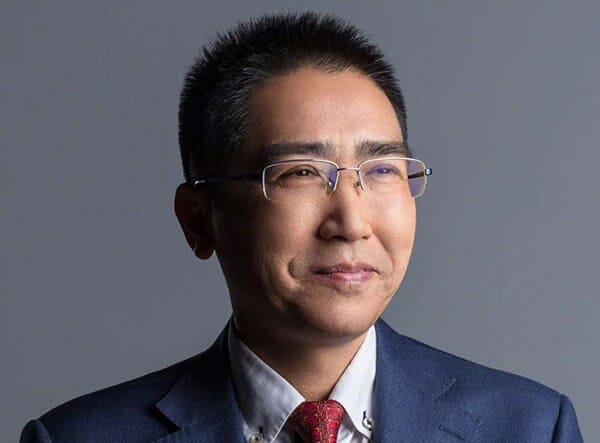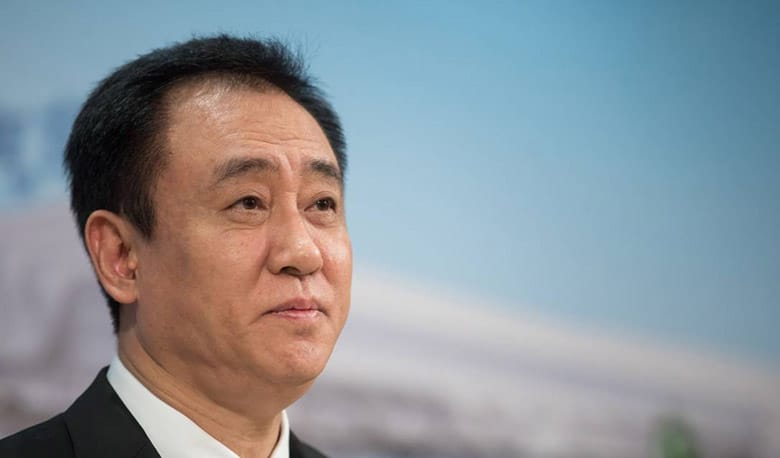
Sunshine 100 founder Yi Xiaodi has defaulted three times this year
Sunshine 100 China Holdings Ltd on Sunday became the latest Chinese developer to default on an overseas bond when the Beijing-based builder failed to repay $170 million of principal and $8.93 million of interest on notes due that day.
The Hong Kong-listed residential real estate developer said it was not able to pay holders of its SGX-listed 10.5 percent senior notes due 2021 as it struggles to raise cash amid a broader crisis faced by mainland builders.
“Owing to liquidity issues arising from the adverse impact of a number of factors including the macroeconomic environment and the real estate industry, the company is not able to repay the principal amount of the notes and the accrued but unpaid interest thereon,” the company said in a disclosure late Sunday.
Sunshine 100’s announcement of its latest in a series of bond defaults further raises tensions as the mainland’s most indebted developer, China Evergrande Group, today facing the end of a 30-day grace period to pay $82.5 million in bond coupon obligations originally due last month.
The developer led by billionaire Xu Jiayin, in an announcement paralleling similar moves by compatriots Kaisa Group Holdings and China Aoyuan, warned late last week that it may not be able to meet upcoming debt obligations.
Missed Payments in Vogue
“Sunshine 100’s latest default is of no surprise, given that it has already been distressed for some time,” said Leonard Law, a senior credit analyst at Singapore-based research firm Lucror Analytics. “The company missed a bond coupon payment in August and carried out a distressed repurchase of its convertible bonds in March.”

Evergrande Founder Xu Jiayin
Sunday’s missed deadline marked Sunshine 100’s third default this year, after it failed to repay $200 million in convertible bonds due on 11 August, and in March had repurchased on a distressed basis HK$750 million ($96.1 million) in convertible bonds due in 2023.
This latest failure could also trigger cross default provisions on other debt obligations, Sunshine 100 warned today, including $120 million in Singapore-listed 12 percent senior notes due in 2023. Also at risk of being called in are $219.6 million in 13 percent senior green notes due in 2022, the company said. However, the developer said it had not yet received any demands for accelerated payment from its creditors as of Monday.
“The company has been proactively communicating with the holders of the notes to reach a repayment extension or other repayment arrangements with such holders as soon as possible,” it said. Trading of Sunshine 100’s 2022 green bonds has been halted since 12 August.
Default Saga to Continue
More than one year ago, the developer founded by Yi Xiaodi had begun suffering successive credit downgrades from international rating agencies as a result of its deepening debt woes.
In May of 2020, before China’s Three Red Lines policies brought new pressure on debt-heavy developers, Fitch Ratings withdrew its rock-bottom CCC- rating of Sunshine 100 due to the company’s dire finances.
“We believe Sunshine 100 will continue to face tight liquidity and high refinancing risk in 2021, especially in the second half when CNY4.4 billion equivalent (CNY0.2 billion repurchased and cancelled by 26 May) in offshore capital market debt becomes due,” Fitch said at the time.
With the company now struggling to manage $385 million in outstanding dollar-denominated bond obligations, including notes with delinquent payments, according to Bloomberg, the company’s chief financial officer Wang Jianting, resigned early last month to be replaced by the 51-year-old Han Bin who had joined Sunshine 100 in September.
The company also saw its overall cash and cash equivalents more than halved to RMB 1.31 billion ($210 million) as of 30 June of this year, compared to RMB 3.07 billion ($480 million) at the end of 2020, based on its latest financial report.
Developers Struggle
Established in 1993, Sunshine 100 received backing from US private equity firm Warburg Pincus before its HK$2 billion (then $258 million) debut on the Hong Kong Stock Exchange in 2014, however, the developer now faces an uncertain future in a more challenging mainland real estate market.
Chinese authorities have been cracking down on the real estate sector since last year after the government tightened rules on lending to avoid excessive borrowing in the industry. Lucror Analytics’ Law, said more defaults from mainland developers are on the way as stricter lending rules weed out weaker firms.
“In general, we expect to see more offshore bond defaults, particularly among weaker developers,” he said. “This is as the refinancing window is likely to remain closed for the foreseeable future, amid poor market sentiment.”
Law added that he expects operating conditions on the mainland to remain challenging as developers struggle with lower contracted sales, which will generate cashflow difficulties for those servicing heavy debt loads.
Leave a Reply